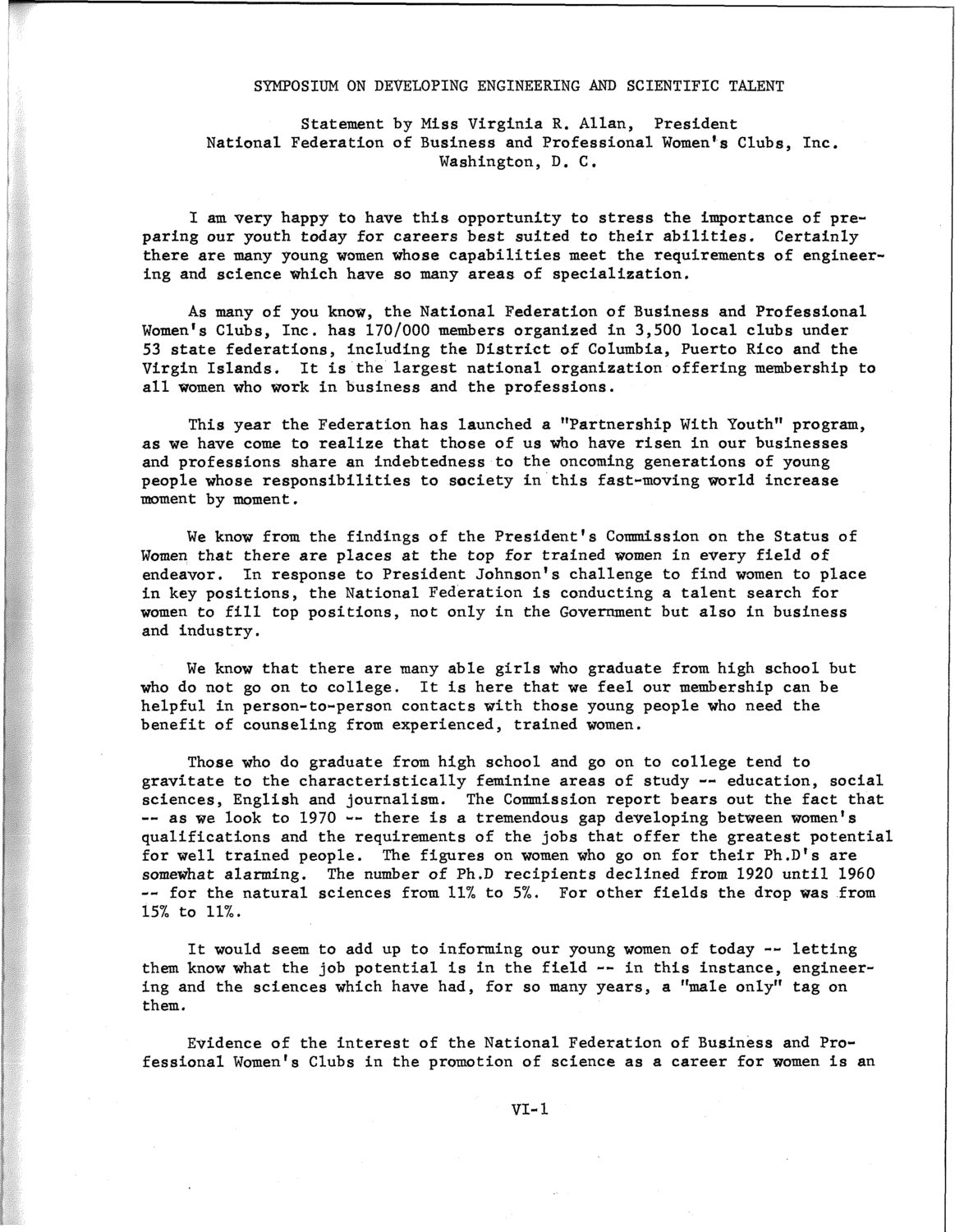| |
| |
Caption: SWE - Proceedings of the First International Conference of Women Engineers and Scientists
This is a reduced-resolution page image for fast online browsing.

EXTRACTED TEXT FROM PAGE:
SYMPOSIUM ON DEVELOPING ENGINEERING AND SCIENTIFIC TALENT Statement by Miss Virginia R. Allan, President National Federation of Business and Professional Women's Clubs, Inc. Washington, D. C. I am very happy to have this opportunity to stress the importance of preparing our youth today for careers best suited to their abilities. Certainly there are many young women whose capabilities meet the requirements of engineering and science which have so many areas of specialization. As many of you know, the National Federation of Business and Professional Women's Clubs, Inc. has 170/000 members organized in 3,500 local clubs under 53 state federations, including the District of Columbia, Puerto Rico and the Virgin Islands. It is the largest national organization offering membership to all women who work in business and the professions. This year the Federation has launched a "Partnership With Youth" program, as we have come to realize that those of us who have risen in our businesses and professions share an indebtedness to the oncoming generations of young people whose responsibilities to society in this fast-moving world increase moment by moment. We know from the findings of the President's Commission on the Status of Women that there are places at the top for trained women in every field of endeavor. In response to President Johnson's challenge to find women to place in key positions, the National Federation is conducting a talent search for women to fill top positions, not only in the Government but also in business and industry. We know that there are many able girls who graduate from high school but who do not go on to college. It is here that we feel our membership can be helpful in person-to-person contacts with those young people who need the benefit of counseling from experienced, trained women. Those who do graduate from high school and go on to college tend to gravitate to the characteristically feminine areas of study — education, social sciences, English and journalism. The Commission report bears out the fact that — as we look to 1970 •— there is a tremendous gap developing between women's qualifications and the requirements of the jobs that offer the greatest potential for well trained people. The figures on women who go on for their Ph.D's are somewhat alarming. The number of Ph.D recipients declined from 1920 until 1960 — for the natural sciences from 117» to 57«. For other fields the drop was from 15% to 11%. It would seem to add up to informing our young women of today — letting them know what the job potential is in the field -- in this instance, engineering and the sciences which have had, for so many years, a "male only" tag on them. Evidence of the interest of the National Federation of Business and Professional Women's Clubs in the promotion of science as a career for women is an VI-1
| |